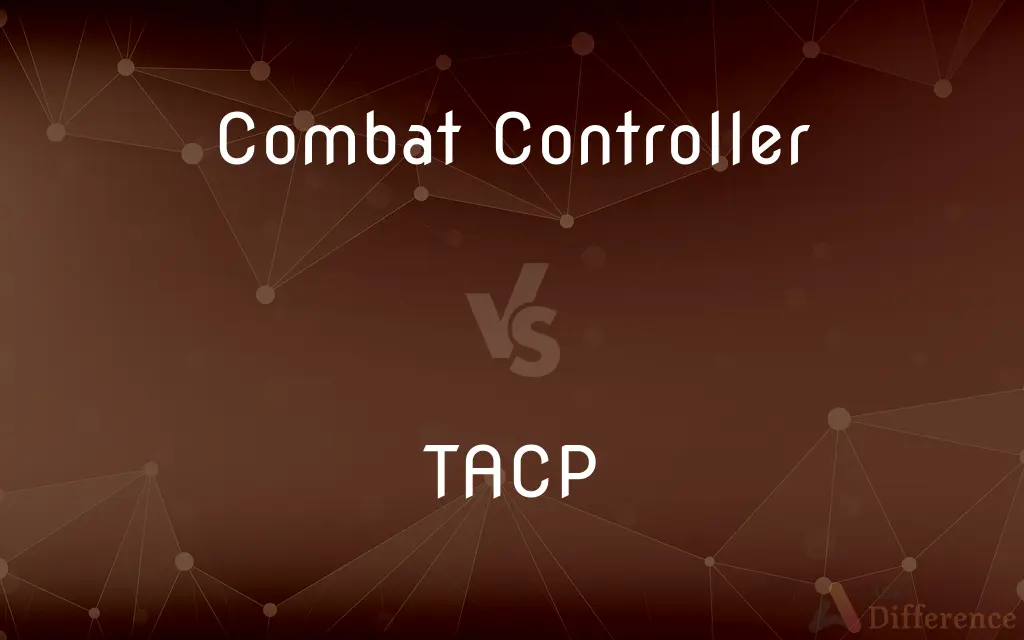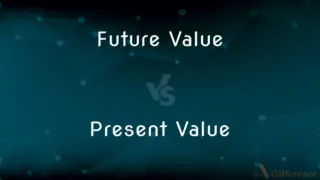Combat Controller vs. TACP — What's the Difference?
By Tayyaba Rehman — Published on January 11, 2024
Combat Controllers are USAF Special Operators trained for air traffic control in hostile environments, while TACPs are specialists who coordinate air support for ground operations.

Difference Between Combat Controller and TACP
Table of Contents
ADVERTISEMENT
Key Differences
Combat Controllers (CCTs) are United States Air Force (USAF) Special Tactics team members specializing in air traffic control, fire support, and command, control, and communications in covert or austere settings. They are trained to deploy by air, land, or sea alongside other special operations forces. Combat Controllers are skilled in reconnaissance, assault zone assessments, and establishing airfields or drop zones, integrating air power into the ground battle.
Tactical Air Control Party (TACP) members, also part of the USAF, work primarily with the Army to provide close air support (CAS) and other tactical air operations. Unlike Combat Controllers, whose training emphasizes air traffic control and parachuting, TACPs are mainly focused on air-to-ground communication to support ground operations. They advise ground commanders on the best use of air power and call in precision airstrikes to support troops in contact.
Comparison Chart
Primary Role
Air traffic control in combat environments
Coordination of air support for ground troops
Training Emphasis
Air traffic control, parachuting
Air-to-ground communication
Typical Operations
Special operations, recon, airfield setup
Close air support, ground combat integration
ADVERTISEMENT
Integration with Forces
Air Force Special Tactics, Navy SEALs, etc.
Primarily with Army units
Air-to-Ground Communication
Advanced level, including CAS
Specialized in CAS, air support operations
Compare with Definitions
Combat Controller
Special Operations
Combat Controllers often work alongside Navy SEALs for joint missions.
TACP
Air Support Coordination
The TACP called in close air support during the ambush.
Combat Controller
Airfield Establishment
Our Combat Controller is assessing a site for a makeshift airfield.
TACP
Army Integration
TACPs are embedded with Army units to provide air-ground integration.
Combat Controller
Air Traffic Experts
The Combat Controller orchestrated the safe landing of aircraft amidst the chaos of battle.
TACP
CAS Specialists
Our TACP ensured the airstrike hit the target precisely.
Combat Controller
Reconnaissance
The team's Combat Controller conducted a reconnaissance mission last night.
TACP
Ground Combat Support
TACPs are essential for ground combat operations requiring air support.
Combat Controller
Parachute Qualified
A Combat Controller parachuted into enemy territory to secure an airstrip.
TACP
Communications Experts
The TACP maintained critical communication between the ground forces and aircraft.
Common Curiosities
What kind of training do Combat Controllers undergo?
They undergo extensive training in air traffic control, parachuting, and survival skills.
What does TACP stand for?
Tactical Air Control Party.
Are Combat Controllers part of special operations?
Yes, they are an integral part of USAF special operations.
Do TACPs only work with the Army?
Primarily, yes, they are experts in coordinating air support for Army operations.
What is a Combat Controller?
A specialized air traffic controller operating in combat zones as part of USAF Special Tactics.
What's the difference in the selection process between Combat Controllers and TACPs?
The selection process for each is tailored to their specific roles and requires different specialized training.
Do Combat Controllers work alone?
They can operate alone but typically work as part of a team.
Can TACPs control air traffic?
While they have knowledge of air operations, their primary role is not air traffic control.
What skills are TACPs known for?
TACPs are known for their ability to call in and direct close air support.
Do Combat Controllers have ground combat roles?
Yes, they can also engage in direct combat and reconnaissance.
Do TACPs get parachute training?
Some TACPs may receive parachute training, but it is not a primary focus like it is for Combat Controllers.
Where do Combat Controllers typically serve?
They can serve in a variety of environments, from conventional battlefields to special operations missions.
Can a Combat Controller call in airstrikes?
Yes, they are qualified to coordinate close air support.
How do TACPs communicate with aircraft?
They use a variety of advanced communication equipment to guide aircraft to their targets.
Which role has more emphasis on joint forces operations?
Combat Controllers often work in joint forces operations due to their diverse skill set.
Share Your Discovery

Previous Comparison
Future Value vs. Present Value
Next Comparison
WPA vs. WPA2Author Spotlight
Written by
Tayyaba RehmanTayyaba Rehman is a distinguished writer, currently serving as a primary contributor to askdifference.com. As a researcher in semantics and etymology, Tayyaba's passion for the complexity of languages and their distinctions has found a perfect home on the platform. Tayyaba delves into the intricacies of language, distinguishing between commonly confused words and phrases, thereby providing clarity for readers worldwide.












































